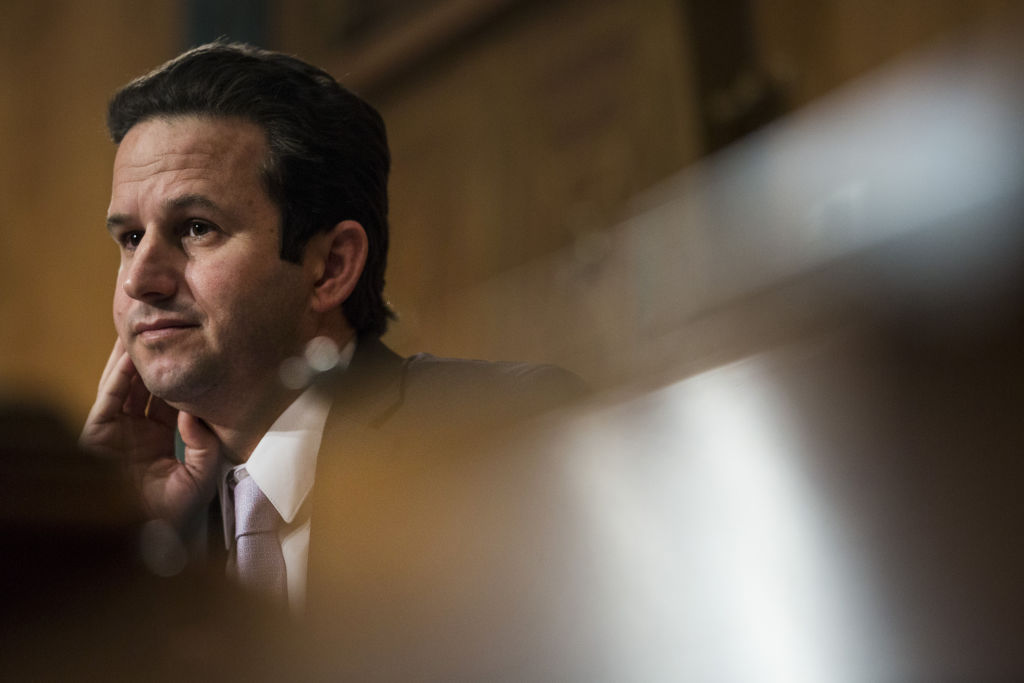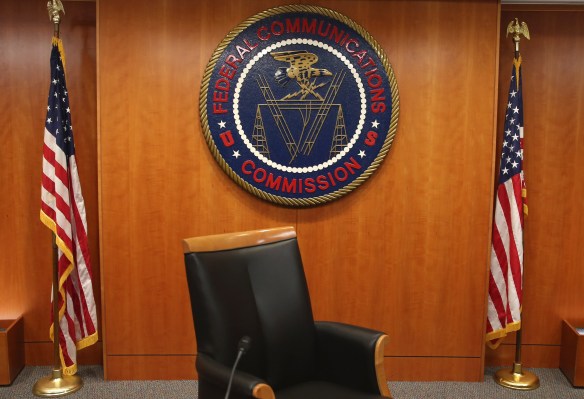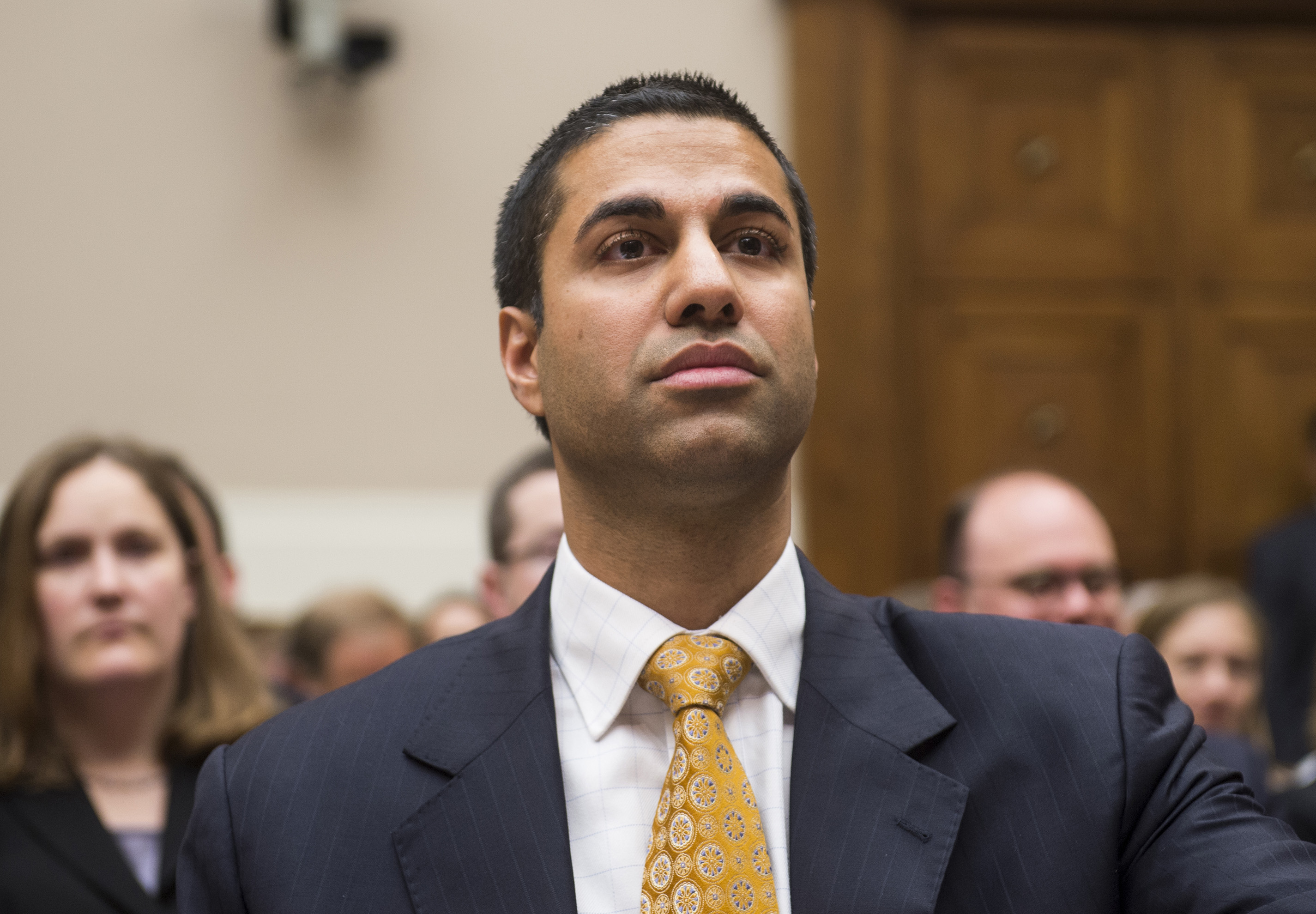FCC Chairman Ajit Pai stirred up the hive today with his official declaration of war on the net neutrality rules established in 2015. Reactions have been mixed — depending on whether the person represents the telecommunications industry or not. In the melee, I had a chance to talk with Senator Schatz (D-Hawaii) about the pronouncement.
Schatz is the ranking Democrat on the cumbrously named Senate Commerce Subcommittee on Communications Technology, Innovation, and the Internet. Among numerous other things, this subcommittee oversees the FCC, so this is the Senator’s wheelhouse.
(Some terminology notes: NPRM is a notice of proposed rulemaking, a draft document explaining a major regulation that is provided and commented on months ahead of the FCC’s vote. CRA is the Congressional Review Act, under which authority Congress rolled back the Broadband Privacy Rule on extremely short notice. Title II is the part of the Communications Act on which the FCC at least partly bases its authority for regulating broadband.)
I asked Sen. Schatz about the frequent villainizing of Title II; Pai and others had described it as “depression-era regulation” designed specifically to handle “the Ma Bell monopoly” and unsuitable for the FCC’s purposes.
“There’s no person in my home state or anywhere else that is troubled by the utilization of Title II in the Telecommunications Act,” he said. “It may make people on Wall Street or K Street nervous, but the rest of us who want the internet free and open are outraged that they’re undoing these basic protections. It must be emphasized here that there is no constituency for what they’re doing. The only entities that want this done are the telecoms. That’s it.”
I noted that Chairman Pai had assigned a great deal of partisan and political motives for the 2015 Open Internet Order — this speech was very far from a procedural dispute. He’d even attempted to discredit a critic for, apparently, being a socialist.
“I was struck by the partisan tone,” said Sen. Schatz. “It was troubling. He’s the chairman of a quasi-judicial body and I thought it was unnecessary. My instinct is they have no idea how outraged people are about to be, or the volume and velocity and passion of the public comments that are going to come flowing in. I would not be at all surprised if it was a record number, and if they ran 50 to 1 against what the commission is proposing.”
 “With the CRA around privacy they woke a sleeping giant,” he continued. “You have a reactivated constituency around tech and protecting themselves. With the CRA it was a 30-hour timeframe, with this NPRM it’s going to be months. I think they’re going to be overwhelmed.”
“With the CRA around privacy they woke a sleeping giant,” he continued. “You have a reactivated constituency around tech and protecting themselves. With the CRA it was a 30-hour timeframe, with this NPRM it’s going to be months. I think they’re going to be overwhelmed.”
In particular, Pai had characterized the FCC’s previous approach as an attention-grabbing reactive move to losing badly in the 2014 midterm elections. The Senator seemed puzzled by this tactic when I asked about it.
“They make this weird argument that what the FCC did was popular and what they’re about to do is unpopular,” he said. And he doesn’t disagree. “He’s right. Lots of people come talk with me about an open internet — that transcends partisan politics and analysis. In 20 years in politics, 15 years in elected office, never has a person not compensated by a telecom company come up and say, ‘Hey, I hate Title II.’ ”
Chairman Pai listed several negative effects apparently linked to the Open Internet Order, specifically a drop in capital expenditure on infrastructure by broadband companies. Sen. Schatz wasn’t convinced.
“This didn’t turn out to be true,” he said. “There’s ample research now that shows that broadband research investment has only increased since the Order, and profitability has increased. The data is in, and the telecoms are doing just fine.”
(Numbers, it must be said, have been advanced that serve both sides of the argument, but several companies are on the record saying their business has been largely unaffected by the Order, and what drops did occur don’t seem to have a direct relationship to the Order.)
The Senator warned against leaving the choice to do right by consumers up to the companies themselves.
“They’ll promise not to do anything nefarious, but there’s nothing under the law preventing them from disaggregating data and selling it to you in packages like cable TV,” he warned. “The market will not fix this if you have monopolies and duopolies in terms of people’s practical access to providers. They’ll promise not to, but I’d say all the same why don’t we just enshrine it in a rule?”
I asked whether the Senator thought that the issue of net neutrality had become too much of a household word, a protection understood and expected, for people to tolerate its being interfered with. Could repealing it, I asked, be so unpopular that it’ll lose political favor?
“Let’s see,” was all he said.
Right now the chairman’s plan is only outlined in broad strokes, but the NPRM will be provided publicly tomorrow, at which point more (and more technical) commentary will begin. Whatever differences Pai may have with those on the other side of this debate, he rightly values due process in a matter of this magnitude.
“This decision should be made through an open and transparent process in which every American can share their view,” he said today. And that’s exactly what he should expect.

